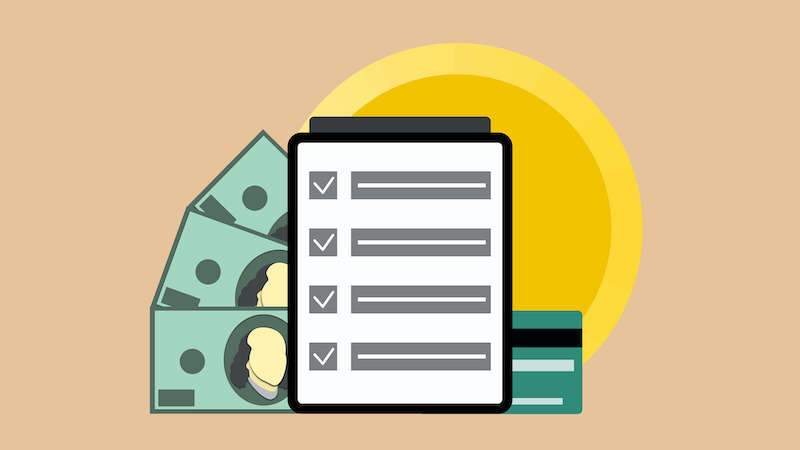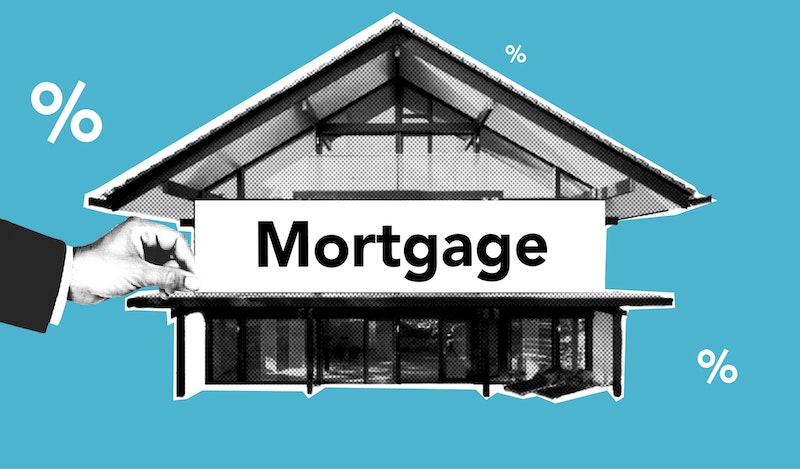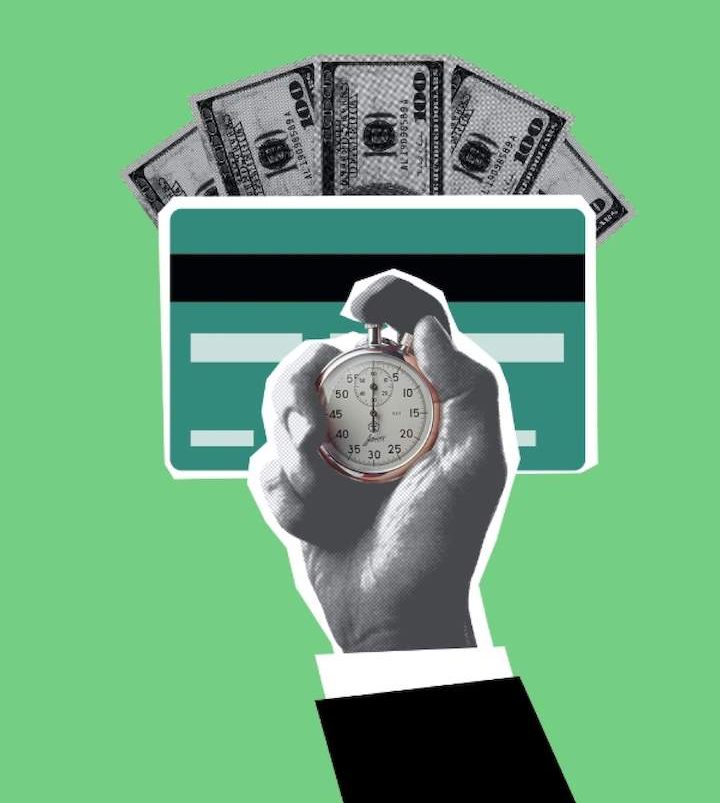What Is a Mortgage Broker?
Mortgage brokers save home buyers time and money by helping them to find the best mortgage deal with the most favourable terms to suit their personal circumstances.
What Is a Mortgage Broker?
Mortgage brokers are a specialists with expert knowledge of the mortgage market. Also known as independent mortgage brokers, these brokers are able to offer impartial advice helping you to compare and contrast different mortgage products to suit your personal needs.
What Do Mortgage Brokers Do?
Mortgage brokers will act as a key contact between borrowers and mortgage providers, aiming to find the best match to suit the needs of each party.
Their job is to find the most competitive rates and mortgage terms for the borrower as well as ensuring that the mortgage product is well-suited to the needs of the client. Mortgage brokers can help borrowers determine the size of mortgage they are able to qualify for.

The mortgage broker does not lend the mortgage but acts as a middle-man between the client and the lender, sourcing mortgage loans from a lender and matching them to the client.
One of the key benefits of working with a mortgage broker is that they have access to a range of mortgage products across different banks and lenders. This means that the borrower is not limited to the mortgages available at one particular bank.
Does a Mortgage Broker Carry Out All Services?
Mortgage brokers can only make the match between the borrower and the lender, aiming to find the best deal on the market to suit the needs of the borrower. However, they cannot supply the funds themselves.
Additionally, it should be noted that they cannot recommend any mortgages that are exclusively available if you approach the mortgage provider directly.
Can Mortgage Brokers Negotiate Fees?
Depending on the mortgage broker that you are working with, it is possible that the mortgage fees are not set in stone and there may be the potential for negotiation.

However, there is also sometimes the option to cut out the middleman and for homebuyers to negotiate mortgage rates and fees with banks and mortgage lenders directly.
How Much Do Mortgage Brokers Charge?
Mortgage broker fees vary between different brokers but the fees will tend to vary between 0.3% to 1% of the total value of the loan. You should never be asked to pay more than this in broker fees.
How Do Mortgage Brokers Make Money?
Mortgage brokers may or may not charge you for their service depending on the situation. Most often, the product you choose (i.e. the type of mortgage) and the value of the mortgage will affect whether or not you will be charged a fee.
Mortgage brokers could receive money from the client directly for their services or may be paid commission by the lender for any new business that they bring in.
If the client is paying, the broker may charge a percentage of the total mortgage amount or could charge a flat fee or hourly rate for their services.

For brokers that are paid by the lender, there will be an agreed commission rate. In these scenarios there might be a conflict of interest as the mortgage broker could be working for the commission from the lender rather than acting in the best interest of the client and opting for the best deal available.
Fee-free mortgage brokers will not pay the customer but will receive a commission from a lender. When brokers advertise a fee-free service, this may just refer to their initial advice being free. If the broker then does go on to find you a mortgage, they may charge a fee at a later stage.
What Is the Difference Between a Bank and a Mortgage Broker?
The key difference between a bank representative and a mortgage broker is that the broker will have access to a broader range of mortgage products (not just limited to those of the bank), and is paid a referral fee by the lenders.
Pricing with mortgage brokers can be as competitive as working directly with a bank, as long as the broker fees are not too high.
Should I Work With a Mortgage Broker?
Working with a broker can help you gain access to a broader range of products and deals than working directly with one bank or building society. In addition, brokers can simplify processes and save you a lot of time shopping around and vetting loans. Brokers will help to reduce mortgage-related fees and keep costs low. One of the most valuable services a broker can offer is the likelihood of approval for various loans as this could save not only time, but potential negative impact on your credit score and future borrowing power.
However, there are some disadvantages to working with a broker. Brokers could charge a borrower fee of up to 1% of the total loan amount which is a substantial fee. Additionally, there may be a conflict of interest due to their existing relationships with specific lenders meaning that it may not be the best deal available for you. Finally, depending on where you are based, it may be difficult to find a reputable local mortgage broker.
What Does a Mortgage Advisor Do?
Mortgage advisors can be contracted by house buyers to help them find the best mortgage deal with the most favourable terms to suit their personal circumstances.
What Is a Mortgage Advisor?
A mortgage advisor is a specialist with expert knowledge of the mortgage market. Also known as independent mortgage brokers, these advisors are able to offer impartial advice helping you to compare and contrast different mortgage products to suit your personal needs.
What Does a Mortgage Advisor Do?
The mortgage advisor will act as a liaison between the borrower and the mortgage lender. Regardless of whether you are buying a home or refinancing, the mortgage advisor will be able to assist you and assess the best course of action for your personal circumstances.
Their job is to find you the most competitive rates and prices as well as ensuring that the mortgage product is well-suited to the needs of the client. Mortgage advisors can help borrowers determine the size of mortgage they are able to qualify for.

The mortgage advisor is not a lender of mortgage funds but instead sources the mortgage loans from a lender and matches them to the client. One of the key benefits of working with a mortgage advisor is that they have access to a range of mortgage products across different banks and lenders. This means that the borrower is not limited to the mortgages available at one particular bank.
Does a Mortgage Advisor Do Everything?
It is worth remembering what service a mortgage advisor is able to provide and what services you may need on top of that in order to budget accordingly.
Mortgage advisors offer you advice about what mortgage suits your needs and can recommend different lenders based on your personal circumstances. However, they cannot advise mortgages that are exclusively available if you approach the lender directly.
Can Mortgage Advisors Negotiate Fees?
Depending on the mortgage advisor that you are working with, it is possible that the mortgage fees are not set in stone and there may be the potential for negotiation.

However, there is also sometimes the option to cut out the middleman and for homebuyers to negotiate mortgage rates and fees with banks and mortgage lenders directly.
How Much Do Mortgage Advisors Charge?
Mortgage advisor fees vary between different advisors but typically range between 0.35% and 1%. If they are independent, it is unlikely that they will not charge a fee, however the exact amount will vary.
In general, it is understood that advisors should not ask for a fee that exceeds 1% of your mortgage. If working on commission, mortgage lenders will typically pay a commission, or procuration fee, of around 0.35% of the loan amount.
How Do Mortgage Advisors Make Money?
Mortgage advisors will either receive money from the client for their services or will be paid by the lender for any business they bring in on a commission basis.

If payment is received by the client, this could be a percentage of the amount borrowed, a flat fee for their services or an hourly rate. When receiving money from the lenders, there will be an agreed commission rate between the mortgage advisor and the lender. For each client that the mortgage advisor brings to the lender, they will receive a commission.
Do All Mortgage Advisors Charge a Fee?
Mortgage advisors may or may not charge you for their service depending on the situation. Most often, the product you choose (i.e. the type of mortgage) and the value of the mortgage will affect whether or not you will be charged a fee.
If they charge you a fee, this might be a flat rate or an hourly rate, depending on the mortgage advisor. In addition, it could also be a percentage of the amount you borrow.
Sometimes, the service of a mortgage advisor will be free to you. In this case, the mortgage advisor will be receiving commission from the lender; this is information that will be shared with you.
It is understood in these scenarios that there may be a conflict of interest meaning that the mortgage advisor may be working for the commission from the lender rather than acting in the best interest of the client and opting for the best deal available.
Should I Get a Mortgage Advisor?
It is usually recommended that you seek advice from a mortgage advisor as they will help you find the best deal to suit your personal circumstances and have access to many different lenders with different mortgage products available.
In general, they can save you a great deal of time and stress and, in the long-run, can save you money by finding you the most affordable deal.

For those with specialist circumstances, for example those with part-time or self-employment, working with an advisor can find you a lender who is matched to your specific circumstances.
If you do not seek the expert advice of a mortgage specialist, you will have to take full responsibility for your mortgage decision. This means that if the mortgage turns out to be unsuitable for any reasons, you cannot take your complaint to the Financial Ombudsman and will not have any rights to appeal.
How Do Mortgage Repayments Work?
Mortgage repayments are paid off over a number of years, the exact amount of which will be agreed upon before entering a mortgage contract.
How Do I Repay My Mortgage?
In order to buy a property, the majority of people will look to take out a mortgage. In the initial stages, in order to purchase the property, they will put down a deposit and then fund the rest with a mortgage from a lender.
The amount that the mortgage will cost will depend on the following factors:
- The amount of deposit you have put down
- The term of the mortgage
- The the interest rate
All of this will help to determine how much you are paying per month, and for how long you will pay until you reach the end of the mortgage term.
How Are Mortgage Repayments Calculated?
You will need to pay off two parts of the mortgage: the “capital” (also known as the principal) and the interest. If you have taken out a repayment mortgage, the monthly payment will be a combination of these two parts.

For example, if you have borrowed £200,000 over the course of 25 years, with a 3% interest rate, you will need to pay off a total of £284,478 over 25 years. Therefore the total payment will be divided by 300 (the number of months in 25 years) and that will be the amount you pay back per month (£948).
However, if you have taken out an interest-only loan, you will pay monthly instalments of just the interest (total amount divided by the number of months in the loan term), and pay the full amount of capital at the end of the loan term.
Do I Need To Do Anything at the End of My Mortgage Term?
Mortgages are paid off in monthly instalments and, for that reason, there is nothing specific you need to do at the end. However, you might need to carry out small administrative tasks such as requesting a copy of your Title Deeds from the Land Registry.
Experts also highlight the need to have a sufficient home and contents insurance policy in place.
What Happens at the End of a Repayment Mortgage?
Before any mortgage is secured, terms will need to be agreed between the borrower and the mortgage provider. This will include the amount of the mortgage, the interest rate, the monthly repayment plan and the duration of the loan. Both parties agree to uphold their end of the arrangement and affordability checks are carried out at the start to ensure that this plan can be met.
A typical mortgage is repaid over 25 years but will depend on the specific loan terms you have with your particular lender. At the end of this term, the borrower will need to have repaid the full amount of the mortgage plus any interest.

After this, the mortgage holder will officially own the property and has full flexibility with what they do with it.
It is possible that the mortgage repayment will not be made in the specified loan term; this could be due to overpayment in the past leading to a faster payoff or, alternatively, inability to meet certain payments meaning a mortgage extension.
What Happens When an Interest-Only Mortgage Ends?
Interest-only mortgages are becoming less and less common and, as the name might suggest, involve monthly repayments of just the interest. That means at the end of the agreed term, you will need to pay the full amount of the capital in one big lump sum.
This can be done using savings, investments or inheritance. Another alternative is selling your house or getting a new mortgage deal in order to make this an affordable option. The option to sell is especially relevant if your home has increased in value since its initial purchase.
If you cannot pay back your interest-only mortgage, for whatever reason, you should speak to your lender as soon as possible to see if they can make any provisions.
Another option could be switching to an alternative mortgage type (a repayment mortgage) with your current lender to introduce the concept of monthly repayments and make the mortgage more affordable. You can also choose to switch only a part of your mortgage to repayment.
Can I Repay My Mortgage Early?
The majority of mortgage agreements offer some flexibility when repaying mortgages earlier, with different options available depending on the provider. Here are some of the possible ways you could repay your mortgage early:
Refinance Your Mortgage
Refinancing your mortgage to achieve an earlier repayment is only a logical solution if you can get a lower interest rate. The option to refinance usually comes with associated fees so you need to make sure that this is actually logical from a cost point of view.
It is also possible to refinance to gain a shorter-term loan which will also mean that you are paying off less interest in the long run.
Make Extra Mortgage Payments
Rather than monthly payments, you can speed up the pay off process by making biweekly mortgage payments or an additional payment per month. Overall this leads to 13 months of mortgage payments annually instead of 12 meaning that you are reducing the length of time you will be paying off your mortgages.
The other option would be to pay more in each monthly instalment meaning that you can make a greater dent in the total amount owed.
Recast Your Mortgage
When you recast your mortgage, you keep your existing loan but pay a lump sum towards the principal. Following this, your lender will adjust the amortisation schedule resulting in a shorter loan term. This can work out as a cheaper option as it incurs lower fees than refinancing.
Make Lump Sum Payments
Whenever you have more money accessible, you can make lump-sum payments to your principal. For example any work-related bonuses, inheritance or even the sale of valuable personal items can provide funds which can be used as extra cash to advance your mortgage.
You can check with your mortgage provider that you are able to do this and will need to specify that you want to apply the lump-sum payments to be put towards the principal. This could be a good option for avoiding the associated fees of refinancing or recasting.
Can I Get a Loan if I Am Self-Employed?
Individuals who are self-employed can apply for a loan if they can demonstrate that they have sufficient earnings and can meet lender requirements.
Do Lenders Offer Loans to Individuals Who Are Self-Employed?
Although options for loans may be more limited for individuals who are self-employed, usually if they have a good credit history, can meet lender requirements and can provide the necessary documents, there should be no reason why they cannot get a loan. Typically, lenders will scrutinise your finances to ensure that you earn enough income to meet payments.
How Long Do You Need To Have Been Self-Employed To Get a Loan?
The majority of major loan companies will require a minimum of two years of self-employment history in order to qualify for a loan. However, there is flexibility within this and it will depend on the loan provider.

Sometimes, you will be able to get approved with just one year of self-employment history as long as you can show proof of employment before that in a related field with a similar or greater income.
How Can You Apply for a Loan if You Are Self-Employed?
If you are self-employed, you will typically need to take more steps in order to demonstrate that you are financially viable enough to meet loan repayments.
Prepare your financial documents - as a self-employed individual, you will need to keep reliable records and be highly organised when it comes to your financial documents, most likely including bank statements. If you are providing financial documents for a limited company, you will probably need to collect payslips to show how much you are paid in dividends monthly.
Check eligibility - the majority of lenders will give you the offer to check your loan eligibility up-front with no impact on your credit score. These are a great way to rule out any loans you are ineligible for before taking the first steps in the loan application and focus your attention on ones for which you are more eligible.
Carry out a loan comparison - comparing loans is the best option for finding the best deal that is tailored to your personal circumstances. Working with a loan comparison service or website can broaden the range of loan options available.
How Can You Prove Income if You Are Self-Employed?
Between lenders, there will be different lending criteria and different documents that will need to be provided. Typically, the following types of documents that can be used to prove income if you are self-employed:
- Proof of ID: this will usually need to be a photo ID such as a passport or a driver’s license.
- Proof of address: documents showing your address such as utility bills or council taxes are usually accepted by lenders.
- Tax returns: if you are self-employed, you will need to self-file after you have submitted your tax returns. this can be done online via HMRC and you will need to download your SA302 and present this for the last two years to prove past income.
- Bank statements: lenders will normally ask to see your bank statements in order to verify the earnings shown by your SA302 calculation. Along with your bank statements, you will need to provide any mortgage documents or lease / tenancy agreements.
What Loans Can I Apply for if I’m Self-Employed?
There are many different types of loans you can apply for as a self-employed individual. The loan you choose will largely depend on your personal circumstances, how much you want to borrow, for how long, and the purpose of your loan.

- Secured loans: this type of loan allows you to put forward equity or collateral as security for the loan meaning that the agreement is less risky for the lender. Due to the lower-risk nature of the loan, secured loans generally offer lower rates of interest.
- Personal loans: these loans can be applied for without the need to secure it against any personal assets. However, you will typically need to demonstrate a good credit record if you want to apply for a self-employed personal loan.
- Guarantor loans: if you are struggling to get a loan by yourself, there is always the option of a guarantor loan. This is when a friend or relative with a good credit record acts as a “guarantor” meaning that they are agreeing to pay should you default the loan payment.
- Business loans: depending on your set-up, you may also be eligible for a business loan. These loans are used to secure funds to support your business and lenders will typically need to check your business accounts before approving any loans.
Are Loans More Expensive if You Are Self-Employed?
Generally speaking, if you are applying for a self-employed loan but have a good credit record, can meet lender requirements and can support your financial status with the requested documents, the rates for a loan should be the same as any standard loan.
Can I Apply For A Mortgage By Myself?
Getting a mortgage by yourself can be a daunting prospect but actually it is very common and there are many benefits to purchasing a property alone. Here, Octagon Capital explores the ins and outs of getting a mortgage by yourself.
Can You Get a Mortgage on Your Own?
Many first-time buyers choose to buy a property alone, if they are able, and it is extremely common. From a lender’s perspective, getting a mortgage as a single person is no different from any other mortgage.
Applying for a mortgage by yourself may mean waiting longer than couples who get a joint mortgage as it means a single income, rather than joint. The more deposit you are able to put down as a down payment, the better your chances of getting approved for a mortgage.
What Size Mortgage Can I Afford by Myself?
The amount that you are able to borrow for your mortgage will be based on your income. This will vary between lenders but will generally be between 4.5 times your income or, in some cases, as much as 6 times your income, situation dependent.

Certain factors, such as your monthly outgoings or employment status, will impact a lender’s willingness to approve your mortgage. If you have a high debt-to-income ratio, that is if your outgoing spending is high proportionately to your income, you risk rejection from lenders.
Usually, lenders will request proof of income and in particular that you have been in that job role for a minimum of 1 year, or in some cases as many as 2-3 years. If you are self-employed, the majority of lenders will only let you borrow based on the earnings evidenced in your end-of-year accounts.
How To Purchase a House as a Single Person
If you are planning to apply for a mortgage as a single person, working with a mortgage broker who specialises in solo applicants could help you find the best mortgage to suit your personal circumstances.
There are a range of different mortgage options out there. It's important to find the one that works best for you. This is where working with a mortgage broker specialising in solo applicants can help, working to help you find deals that best accommodate to your requirements.
What Does Applying for a Single Person Mortgage Mean for Ownership?
Applying for a loan by yourself does not necessarily affect the ownership of the home. Typically, all borrowers on the mortgage application must be listed on the title deeds.

However, if you apply for a mortgage alone, this does not prevent other names being listed on the title as well. Non-borrowers can be included on the deed title and have legal ownership of the property; however, you will most likely need to check this with the mortgage provider.
What Is Right To Buy in Sole Name?
If you live in a council house and qualify for the Right to Buy scheme, your mortgage application will need to be in the name of anyone on the Right to Buy paperwork.
Therefore, if you are the only person who qualifies, lenders would most likely request for you to apply for the Right to Buy mortgage alone meaning that your credit history and income alone will be assessed.
If You Are Married, Do You Have To Apply for a Mortgage With Your Spouse?
For married couples, it is not necessary to include both spouses on the mortgage application when buying a house or refinancing current homes. In fact, in some cases it might be better to only include one spouse on the home loan application. For example, if you choose the spouse with a better credit score, it could make it more likely that the couple will be approved for a mortgage.

Even if you choose to buy a house under one name, you can add your spouse to the home’s title after the loan is finalised and become official “co-owners” of the property. However, the person on the mortgage application will be the sole party responsible for the repayment of the loan. Listing a spouse as a co-owner on the house title does not signify any legal responsibility for them to assist with the mortgage payments.
Benefits of Applying for a Mortgage Alone
There are many reasons why someone may choose to apply for a mortgage alone.
- Save money on mortgage interest rates: If you have good credit, you could save thousands on your home loan in the long run. Applying alone can significantly reduce the mortgage cost and the interest rates incurred as you will not be impacted by someone else’s less-than-perfect credit rating.
- Avoid credit issues: For joint applications, mortgage lenders create a “merged” credit report using the scores of each applicant; they then use the lowest of the two scores in order to evaluate the application. This means that if one person on a joint application has a poor or damaged credit history, it can have a negative impact on the entire mortgage application.
- Preserve assets: In order to take out a secured loan, you will need to offer collateral to reduce risk for the lender. In many cases, this could be an asset such as your home. This means if you are unable to pay your mortgage, you risk being vulnerable to asset repossession. If you buy a house in just your name, you protect your home from creditors in the case that the other applicant has any outstanding debts such as student loans or unpaid taxes.
Disadvantages of Applying for a Mortgage Alone
A joint mortgage application may be a good idea for some cases, especially for married couples who have similar credit histories. If this is the case, applying for a mortgage alone may prove to be disadvantageous.
- Only one income: The key disadvantage of applying for a mortgage alone is that only one income can be counted on the application. This will significantly reduce the buying power and reduce the range of properties which are available. Joint applications include two incomes, meaning that a couple can afford a larger monthly mortgage payment and increase the maximum loan amount they can qualify for. This also means that they have access to more expensive homes than simple applicants.
- Higher debt-to-income ratio: If you are applying for a mortgage alone and have high outstanding debts, you may find it difficult to meet a lender’s debt-to-income ratio requirements.
Can I Get a Loan With Bad Credit?
It is possible to take out a loan with bad credit although your options may be more limited. However, there are plenty of providers across the country who specialise in bad credit loans and there are options available to suit your specific needs.
What Does It Mean To Have Bad Credit?
A credit score is a number which represents a person’s financial history taking into account any money they may have borrowed in the past. If you have a higher credit score, this is indicative that you are more of a reliable borrower who can meet repayments.
For those who have struggled to repay a loan or a credit card bill historically, this will be reflected in your overall credit score and subsequently may impact your ability to borrow money in the future.
Similarly, for those with no credit history (either due to age or having lived overseas), they may find it difficult to demonstrate to lenders that they have a good credit history.
What Types of Loans Are Available for Those With Bad Credit?
Even if you have bad credit or no credit history, there are options available to take out a loan. These include the following...
Secured Loans: Secured loans tend to be the most common option available. These are loans that are offset with collateral, meaning that they are a lower risk for the lender. The borrower will need to put up something valuable - home, car or anything else that can be used as collateral - and this possession will be repossessed should they default the loan repayment. Secured loans are different to unsecured loans - unsecured loan borrowers not requiring collateral to get approved.

Guarantor Loans: These loans are designed for borrowers who have poor credit or no credit history and who are rendered with few options. Guarantor loans work by having a relative or friend act as a “guarantor” meaning that they promise to pay back the remaining amount should the borrower default. Due to the extra risk associated with this type of loan, there are usually higher interest rates.
Personal Loans: Even with a less-than-exemplary credit rating, there are personal loans available on the market. However, usually they have stricter lending criteria. For example, there is usually a stricter cap on how much you are able to borrow. Additionally, due to the high risk nature of these types of borrowers, lenders usually ask for a much higher APR in order to protect them should the borrower default the payment. For that reason, personal loans tend to be quite expensive in the long run.
Can You Improve Your Credit Score?
You could have access to a wider range of options and better lending conditions by improving your credit score. This can be done over time by paying back your bills when they are due but there are also some simple things you can do to improve your credit score in the short term.
The simplest way to improve your credit score is to never make a late payment. Additionally, you can crease how much you are using your credit and increase your credit limit. If there are any errors on your credit report, you can request for them to be removed.
If you are able to meet your repayment schedule in full and in a timely manner every month, you can increase your credit score over time. This will help you in the long run as it shows that you are borrowing responsibly.
Factors To Consider When Taking Out a Loan With Bad Credit
When taking out a loan, there is always an element of associated risk. Especially for borrowers with lower credit scores, there is more risk both for the borrower and the lender.

Here are some key things to consider before opting to take out a loan with bad credit:
- Cost of defaulting - if you default on a loan payment, it is always costly, but it is especially expensive in the case of a bad credit loan and could involve repossession or legal action. The important thing is to always make sure you are meeting your payments.
- Credit score, income and other factors - it is not just credit score that lenders will look out before considering you for a loan. Your income, employment history and stability, outstanding loans and amount of equity will all be considered.
- Affordability of the loan - if you have a lower credit, it is likely that you will have a more expensive loan and can borrow a smaller amount. Before entering this agreement, you must ensure that you are able to comfortably make the repayments alongside any other outgoing payments for the full duration of the loan term.
- Limits on what you can borrow - unlike typical loans, bad credit loans will tend to have stricter limits on the amount that you can borrow. This is due to the level of risk for the lender. For anyone needing to borrow money, they should manage their expectations to determine how much money they should borrow with the higher interest rate and whether or not they can afford it.
Can I Extend a Student Loan?
Student loans typically last for the duration of your degree programme; however, in some cases you may be able to extend your student finance, for example if you need to repeat a year.
Is It Possible To Extend a Student Loan?
Usually your student loan will last for the duration of your degree programme plus one additional year. For example, degrees are typically three years in the UK so the maximum number of years of Tuition Fee Loan available for these courses will be four years.
However, in some circumstances you will be able to extend your loan. For example, if your situation changes and you need to temporarily stop your studies or change degree, you may be able to receive more funding to extend to the end of your new course.
How Long Do I Have To Repay My Student Loan?
It is also not necessary to repay your student loan upon completion of your degree. The Extended Repayment Plan permits you to repay your loans over an extended period of time lasting up to 25 years. This allows borrowers to pay back lower monthly payments over a longer period of time.

There are different repayment plans depending on when you took out your student loan which will affect how much you need to repay and over how much time. Additionally, you will only start to repay your student loan when you are earning a certain amount. If you are not earning enough, or are unemployed, there is no obligation to repay.
How Long Does a Student Loan Last?
The standard duration of a student loan is the length of a course, typically 3 years in the UK. Students are eligible for student finance if their university or college offers a qualifying course that is recognised by the government.
If you are studying full-time, student finance is available for the following types of courses:
- First degrees (BSc, BA or BEd)
- Foundation degrees
- Certificate of Higher Education
- Diploma of Higher Education
- Higher National Certificate
- Higher National Diploma
- Initial Teacher Training course
- Integrated master’s degree
- Pre-registration postgraduate healthcare course
There is a lot of variation between these course types and specifically their duration. However, student finance provides funding for the duration of the course. Part-time courses are eligible for student finance in the UK as long as there is a ‘course intensity’ of 25% or more.
Those studying a first degree, Initial Teacher Training course, integrated master’s degree, Foundation Degree in dental hygiene and dental therapy or a DipHE in dental hygiene and dental therapy or operating department practice are also eligible for a Maintenance Loan throughout their course.
Can I Get Student Finance if I Have Already Studied?
Student finance is only usually available for your first higher education qualification. However, there are some exceptions. For example, if you changed course, had to stop your studies prematurely or are repeating a year, you may be entitled to receive student finance again.

If you stopped your studies within the first year and went back to study the same degree or a different course in the future, you will get funding when you go back. You may also receive funding if you withdrew from your course before it finished or are repeating a year of your course in the same university or institution.
What Is the Maximum Amount of Student Loans You Can Borrow in the UK?
Full-time and part-time students who are eligible can borrow up to the full cost of their course fees (up to £9,250 annually), regardless of their personal circumstances or household income.
The average student in the UK leaves university with a debt of around £35,000.
If I Have To Repeat a Year, Can I Still Get Student Finance?
If you have to repeat your year or extend your study, you will still be able to get student finance; typically, both for a Tuition Fee Loan as well as a Maintenance Loan.

Your Tuition Fee Loan will last for the full duration of your first course plus an additional year, if needed. On occasion, your personal circumstances may be such that you can request an extra year of financial support if you do not have enough years left of funding to cover your course fees.
If My Academic Year Is Extended, Can I Receive Student Finance?
If for any reason your academic year is extended beyond the standard 30 weeks and 3 days, it is possible to receive a ‘Long Courses Loan’. This is only available if the teaching is extended. If you are finishing your course at a later date due to ongoing re-assessment, it will not be possible to extend your student finance.
Your university or college will have to inform the Student Finance governing body about the extension in order for the Long Courses Loan to be approved.
Can Loans Be Paid Off Early?
Paying off a loan early can be a great option if you come into extra money, and could actually save you money in the long-run. However, you should be wary of any fees associated with early repayment.
Can You Repay a Loan Early?
It is possible to repay your personal loans early; however, you may incur early repayment charges which will feature in the terms and conditions dating back to when you first agreed to take the loan out.
Some lenders may not claim to have early repayment charges but may have hidden fees, so it's worth checking this out before making a decision.
How Much Does It Cost To Repay a Loan Early?
Early repayment charges will vary depending on the lender, and will be based on a number of different factors. Since 2004, Consumer Credit Regulations state that lenders can charge consumers up to 2 months additional interest should they decide to make an early loan repayment.

In addition, they stated that if you have fewer than 12 months left on your monthly repayment plan, lenders can charge up to 28 days’ interest.
With that in mind, calculate that your early repayment charge will be one or two month’s worth of interest, depending on the length of your policy.
If the loan you have taken out is for more than £8000, other fees may apply including:
- 0.5% of the amount repaid early if the agreement has less than 12 months left
- 1% of the amount repaid early if the agreement has more than 12 months left
- Remaining interest before the rebate
Before agreeing to make any early repayment, it is always worth speaking to your lender.
How Do I Know if My Lender Charges a Fee?
Some lenders will be fully transparent about their early repayment charges from the offset; however, others may have hidden fees. In this situation, lenders may not advertise that they charge for early repayment because they will technically be charging for additional interest.
If you are unsure about whether you would have to pay a fee for early repayment, the best course of action is to check your credit agreement. This can be done before you take out the loan or at any point afterwards. Loan agreements will set out the terms of the loan including what happens should you decide to make an early repayment.
How Can I Repay My Loan Early?
If you do decide to pay off your loan early, the first thing you should do is to get in touch with your lender to request an ‘early settlement amount’. Then, the lender will share a figure of how much you will need to pay and give you a 28-day payment window to pay it.
This is optional so there is no obligation to make the payment if you do not want to. Additionally, if you do not pay the amount in the 28-day payment window you can usually request the amount again.

If you would like to partially repay your loan at an earlier date, this is called 'overpayment'. This means that you can make your monthly repayments cheaper in the long-term by lowering the amount of interest.
If you would like to make an overpayment, you will need to notify your lender and make the overpayment within 28 days. Your lender will then adjust your payment schedule for the remaining duration of the loan.
However, always check with your lender first as sometimes partial overpayments are not permitted by the lender or could incur additional fees.
Will Early Repayment Save Me Money?
The amount that you save with early repayment will depend on the value of your original loan, its interest rate, and how long is left of your loan term. For example, if you are nearing the end of your loan term and have a low interest rate, it is unlikely that you will save very much. Yet, if you have a large loan amount with a high interest rate and are able to pay it back a few years in advance, you may save thousands of pounds.
Your lender can tell you how much money you would save if you ask them to share how much you would owe in total with normal monthly repayments compared to how much you would have to pay if you can repay the loan early. This is a valuable point of comparison that can guide your ultimate decision.
How Much Mortgage Can I Have?
The majority of people will take out a mortgage in their lifetime to help them pay for a property. The amount of money that someone is entitled to borrow will depend on many factors, including the following:
- Their salary
- The property value
- Their credit score
What Is a Mortgage?
A mortgage is an agreement between borrowers and lenders in which a property is used as a guarantee for a loan to get money. When the mortgage transaction is made, borrowers receive money and promise to repay the loan. The lender will receive money paid back over time plus interest.

Mortgages can come from banks or other financial institutions and can be used not only to buy a house but also for refinancing existing properties.
How Much Mortgage Can I Afford Based on My Salary?
Generally speaking, the rule is that you can afford a mortgage which is between 2 to 2.5 times your gross income. However, this will largely depend on the individual, their personal circumstances, and the type of mortgage they are taking out.
Many mortgage lenders work on the principle that a mortgage will be 4-4.5 times your salary with some lenders stretching to 5 times or 6 times salary for the right borrower profile.
How Does Credit Score Affect Mortgages?
A credit score is what lenders used to determine whether the borrower is a high-risk or low-risk candidate for a loan. The score is based on spending history, including any borrowing behaviour, and can see whether an individual makes repayments on time and their amount of debt. The higher the credit score, the better someone is as a candidate for a loan.

For individuals with high credit scores, they are more likely to be approved for a loan as they demonstrate that they can meet payments and are careful with money. This may also mean that they qualify for better loan terms including better interest rates and fewer fees.
It is still possible to get a mortgage if you have a poor credit score, however it is usually more difficult and the terms tend to be less favourable.
Can a Bigger Down Payment Lead to a Better Mortgage Rate?
When taking out a mortgage, a borrower will always have to put down some form of down payment, although the exact value will vary between lenders. The idea of a down payment is that it protects the lender as they are not putting up 100% of the property’s value.
The standard down payment for a mortgage is 20% of the property’s value with 80% funded by the lender. However, if a borrower is in the position to put down a higher down payment, this can be beneficial for all parties. Not only does it provide greater protection for the lenders, it means that the borrower will be able to save money in the long term due to increased equity in the property and not needing to pay mortgage insurance premiums.
Does Salary Affect Mortgage Rate?
Salary is an important component of the mortgage equation, but not in isolation. An individual’s salary, in addition to their debt, amount of down payment, and mortgage rate, will all contribute to the final amount of a mortgage.

The majority of lenders will look at a person’s salary relative to the amount of debts they owe. This is what is known as “debt-to-income” ratio. Debt-to-income ratios allow a lender to assess how affordable mortgage repayments are for a borrower.
In general, if a person has a lot of debt, it is a red flag for lenders as it indicates that the borrower owes a lot of money which may take priority in the case of failure of payment. People who have a poorer debt-to-income ratio may struggle to be approved for a loan or may incur higher interest rates or additional fees.
It is not only salary that is important, but employment history. Nearly all lenders will require proof of employment with many specifying a minimum of two years of past employment. Those without an employer, such as self-employed individuals, will need to demonstrate proof of income and may find it more difficult to be approved for a mortgage.
How Much Mortgage Can I Afford?
Affordability of a mortgage will be determined based on many different factors, and will vary across borrowers. In general, it is calculated based on monthly outgoings and income. Different aspects of a mortgage, such as interest rates and repayment period, will also impact the affordability of a mortgage.
What Is a Mortgage?
A mortgage is an agreement between borrowers and lenders in which a property is used as a guarantee for a loan to get money. When the mortgage transaction is made, borrowers receive money and promise to repay the loan. The lender will receive money paid back over time plus interest.

Mortgages can come from banks or other financial institutions and can be used not only to buy a house but also for refinancing existing properties.
What Mortgage Payment Can I Afford?
To determine what mortgage payment you can afford, lenders typically take into account different factors, including the following:
- Income
- Any monthly debts
- The amount of savings available for a down payment.
In addition to these factors, you should consider any unexpected costs that may arise and which could negatively impact your savings.
Experts recommend having three months of payments, including enough to cover your housing payments and other monthly debts, in savings which can act as a buffer in case of unexpected costs.
What Amount of Mortgage Can I Afford Based on My Salary?
Typically, mortgages are calculated based on around four times your annual income. However, it will also depend on your income source. For example, if your income is purely made up of your salary, you are more likely to get a mortgage than someone whose income source is a combination of benefits and their salary.
Salary is an important component of the mortgage equation but it will not be considered in isolation. Lenders will also look at the amount of debt an individual has and the value they are able to put as a down payment.

The majority of lenders will look at a person’s salary relative to the amount of debts they owe. This is what is known as the “debt-to-income” ratio. Debt-to-income ratios allow a lender to assess how affordable mortgage repayments are for a borrower.
If a person has lots of debt, they will have a greater load of monthly outgoing payments that they will be expected to make. This means that people who have a poorer debt-to-income ratio may struggle to be approved for a loan or may incur higher interest rates or additional fees.
Employment history, in addition to salary, also plays an important part. Practically all lenders will require proof of employment with many specifying a minimum of two years of past employment. Those without an employer, such as self-employed individuals, will need to demonstrate proof of income and may find it more difficult to be approved for a mortgage.
How Does Credit Score Impact Affordability?
A credit score is what lenders used to determine whether the borrower is a good candidate for a loan. The score is based on spending history, including any borrowing behaviour, and can see whether an individual makes repayments on time and their amount of debt. The higher the credit score, the better someone is as a candidate for a loan.
Individuals with higher credit scores are more likely to be approved for a loan as they demonstrate that they can meet payments and are careful with money. This may also mean that they qualify for better loan terms including better interest rates and fewer fees.
It is still possible to get a mortgage if you have a poor credit score, however it is usually more difficult and the terms tend to be less favourable.
How Does Down Payment Amount Impact Affordability?
A bigger down payment may save the borrower a lot of money in the long term. Borrowers will always need to put down some form of down payment when procuring a mortgage in order to protect the lender.

Although the standard down payment for a mortgage is 20% of the property’s value with 80% funded by the lender, it will vary between lenders. If a borrower is in the lucky position of providing a greater down payment, this can benefit both the lender and the borrower. Not only does it provide greater protection for the lenders, it means that the borrower will be able to save money in the long term due to increased equity in the property and not needing to pay mortgage insurance premiums.









